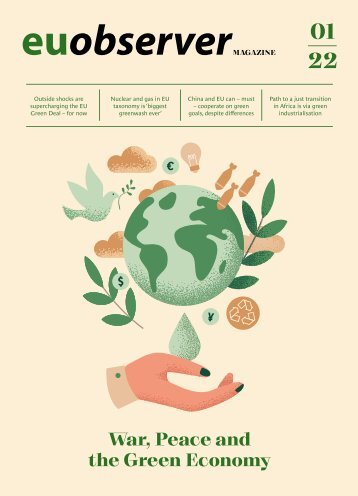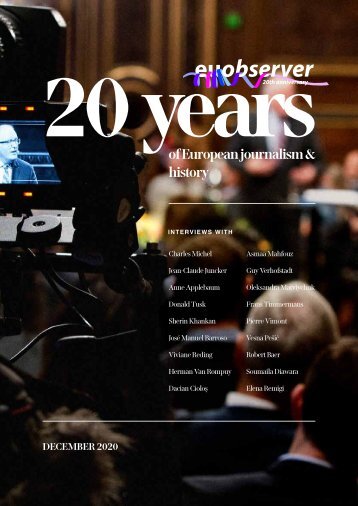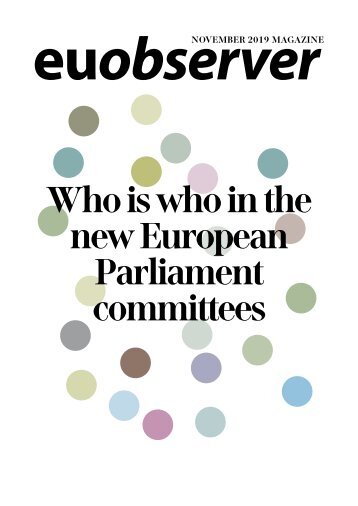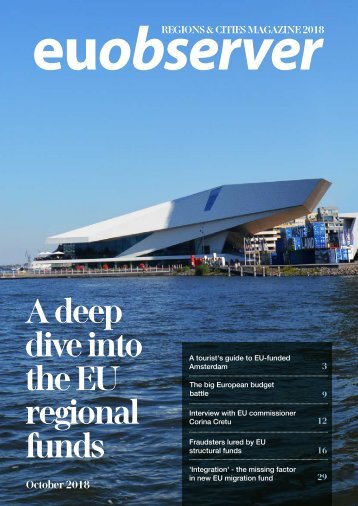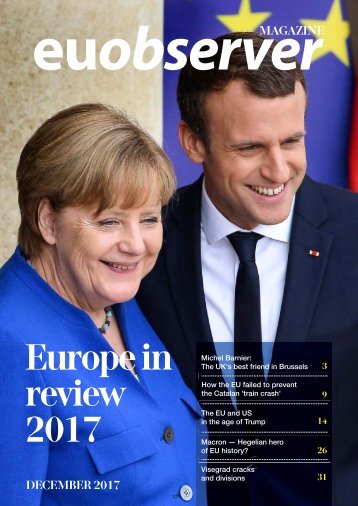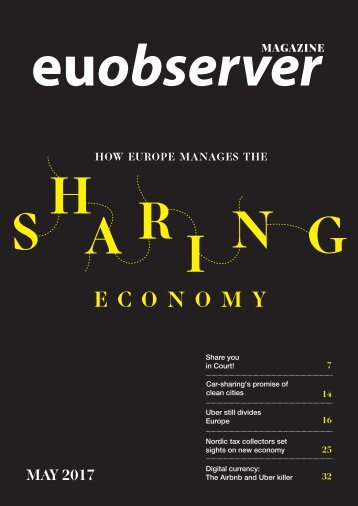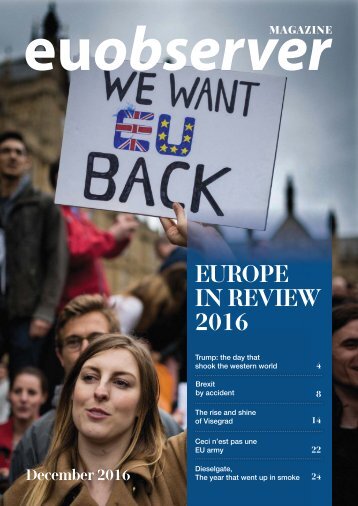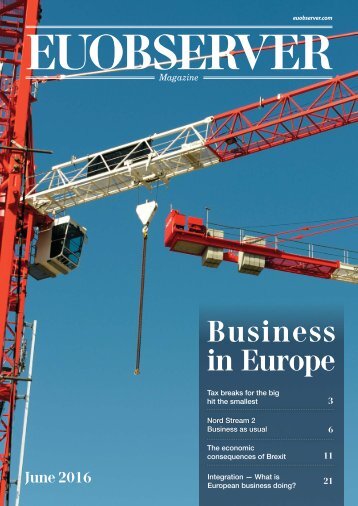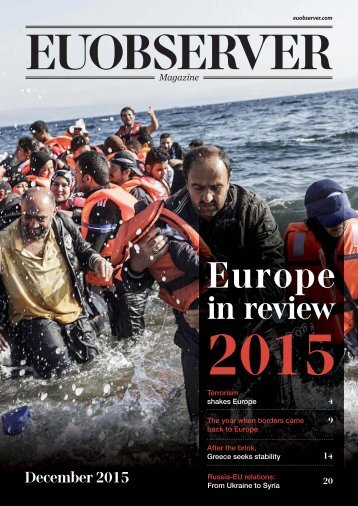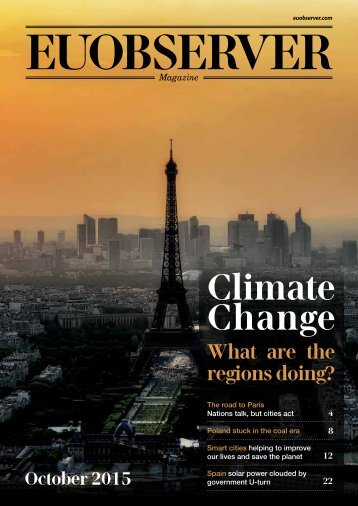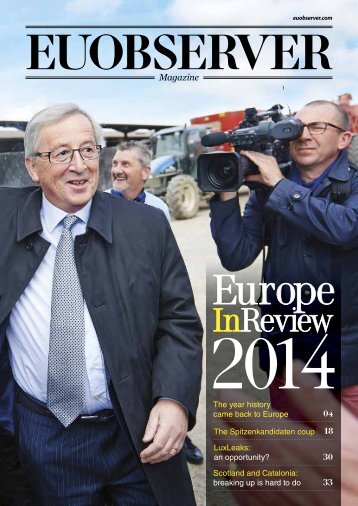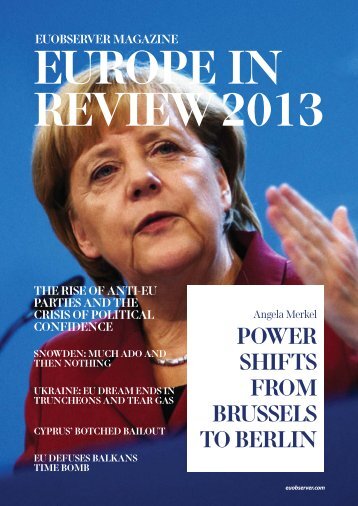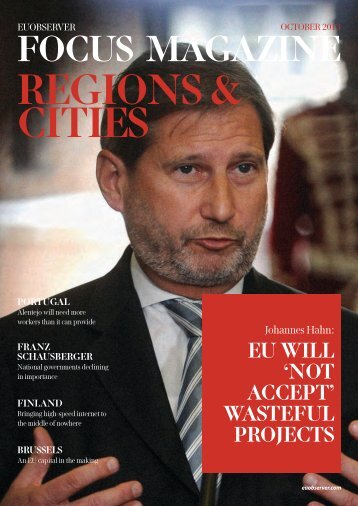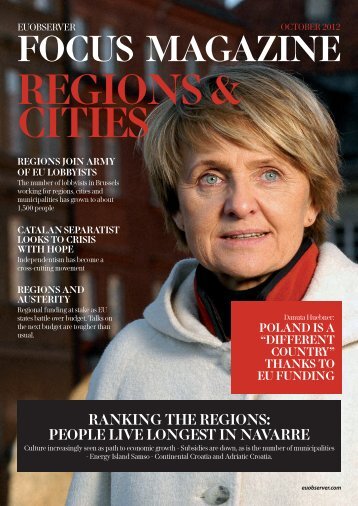European Parliament Elections 2019
- Text
- European
- Parliament
- Elections
- Meps
- Parliamant
- Brussels
- Strasbourg
- Russia
- Plenary
- Euobserver
"I believe that the role
"I believe that the role of the European parliament president should be very much impartial and neutral, in order to bring forward the entire views and positions of the entire parliament". "I think the European Parliament's voice is heard, definitely," he replied. However, he also stressed that the summit was not really where the parliament exercised its influence. Tajani did indeed interfere - several times - in the debate about Italy's budget, put forward by the coalition government consisting of Evi's Five Star Movement and the far-right League party. At a press conference last December, Tajani said that Rome's row with the EU commission was a "needless power game" which "wasted an awful lot of money", calling on the Italian government to be "a bit more serious". For Anna Maria Corazza Bildt, a Swedish MEP with Italian roots, and fellow EPP member, Tajani did nothing wrong, because the proposed Italian budget had violated EU rules. "If you stand for the treaties, you are neutral," she said. "It is not at all a ceremonial job," she added. Since 1987, the president has been welcomed to EU summits, where he or she delivers a speech giving the parliament's view. However, the parliament president has to then leave the room when the real discussions begin. Thus, even journalists covering the summit often skip the press conference given by the parliament president. At the summit in December 2018, EUobserver asked Tajani what he thought his influence was on EU leaders? Rather, this is done in the so-called trilogues - negotiations on specific legislative files. "There is a legislative process, but that is not done here, is it? The concrete results you are asking about are in trilogues." A MAN'S JOB? Most of the parliament presidents have come from one of the two largest groups, the centre-right EPP and centre-left Socialists & Democrats (S&D). Only two of 15 have been women - the most recent being the French centre-right's Nicole Fontaine (1999-2002). And it is not even necessarily the most sought-after job in the parliament. Centre-right German Jens Gieseke has been an MEP since 2014 for a constituency in Lower Saxony, as successor to former parliament president Pottering. But Gieseke does not desire the highest office per se, he told EUobserver. He would rather serve as chairman of a parliament standing committee, of which there are some 22, on issues ranging from trade to fisheries. "Perhaps it is even more interesting to be chair of a committee, with a real influence on a limited issue, than just to have the opening speech and to give the blessings," according to Gieseke. Nicole Fontaine (l), the most recent female president of the European Parliament, is seen here in 2001 visiting then prime minister of Luxembourg Jean-Claude Juncker Photo: European Parliament 34 — EUROPEAN PARLIAMANT ELECTIONS 2019
The gender gap at EU elections Proportionally, more men vote in the European elections than women - in a trend that has widened since 2009. Yet the European parliament's outreach strategy to voters targets only young people, students and "people who exert a certain influence". By Nikolaj Nielsen Just over 36 percent of MEPs in 2017 were female Photo: European Union 2017 - European Parliament Women across Europe don't tend to vote as much in European elections, compared with men. That fact poses questions on the growing gender gap in both politics and representation in the European Parliament. Data, based on the European parliament's 2014 postelectoral survey, found France was the worst culprit in terms of a voting gap between the sexes. Some 11.6 percent fewer women in France voted than men in the EU elections, followed by Portugal (-11.3 percent) and Poland (-7.4 percent). Elsewhere, such as in Sweden, the opposite occurred, with 16.6 percent more women than men voting, followed by Malta (+8.7 percent) and Lithuania (+7.0 percent). states had 45 percent of men voting, compared to 40.7 percent for women. The overall gap between male voting and female voting is getting wider and has now reached a four point spread, compared to two points in 2009, according to a TNS Opinion field survey. "This survey also reflects the fact that men become more active in the EU elections than women," said Simona Pronckute, an expert at the Brussels-based European Policy Centre think tank. SIX 'TRIBES' A separate Chatham House study in 2017 identified six political 'tribes' of voters, following a survey of 10,000 people. Total combined turnout was just over 42 percent. Of that total, the EU average spread across the 28 EU The 'Federalists' were identified as the most pro- European, but also the smallest, of the six, and were composed primarily of wealthier and older men. 35 — EUROPEAN PARLIAMANT ELECTIONS 2019
- Page 1 and 2: EUROPEAN PARLIAMANT ELECTIONS 2019
- Page 3 and 4: European elections 23-26 may 2019 t
- Page 5 and 6: Currently, the largest political gr
- Page 7 and 8: The meeting of the bureau, chaired
- Page 9 and 10: Frans Timmermans fired up at the So
- Page 11 and 12: In February 2018 it adopted a text
- Page 13 and 14: THE CANDIDATES Manfred Weber, EPP (
- Page 15 and 16: The travelling CIRCUS Twelve times
- Page 17 and 18: The 'travelling circus' costs the E
- Page 19 and 20: As this magazine went to print, the
- Page 21 and 22: EU commissioner Miguel Arias Canete
- Page 23 and 24: German MEP Rainer Wieland (r) oppos
- Page 25 and 26: Russian leader Vladimir Putin with
- Page 27 and 28: that no one may be insulted or disc
- Page 29 and 30: He invited the World Congress of Fa
- Page 31 and 32: Europa' memes to provoke tension. B
- Page 33: Political science professor Ariadna
- Page 37 and 38: On average, fewer women vote in the
- Page 39 and 40: STAKEHOLDER Follow F4E on Twitter @
- Page 41 and 42: JULY - A new European Commission pr
- Page 43 and 44: EUobserver Making sense of the EU G
Inappropriate
Loading...
Mail this publication
Loading...
Embed
Loading...



